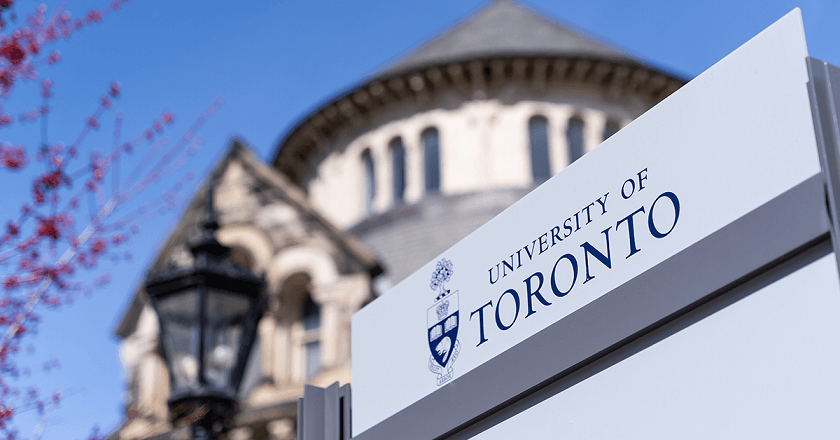

Canada has become a popular stop for international students. Having prestigious universities, lively student cities, and a well-organized lifestyle, Canada turned into a country with a noble reputation and high demands. However, the first step in this path is learning about living costs in Canada for international students. This guide presents all you need to know about the required budget for studying in Canada.
In this guide:
- Tuition Fees of Universities in Canada
-
- Tuition Fees for Bachelor’s Degrees in Canada
- Tuition Fees for Master’s Degrees in Canada
- Tuition Fees at Top Universities of Canada
- Most Affordable Universities of Canada
- Living Costs in Canada for International Students
- Housing Costs in Canada
- Food Costs: Living Costs in Canada
- Transportation Costs in Canada
- About Student Permit and Visa in Canada
- Financial Support for International Students
- Conclusion

Tuition Fees of Universities in Canada
According to THE’s (Times Higher Education) World University Rankings, Canada has over 30 universities listed among the best universities worldwide.
That said, tuition fees at Canadian universities are a bit high but generally lower than those from countries like the US, the United Kingdom, and Australia.
University fees may vary yearly, as some differences are depending on the city or degree program. Newfoundland universities have the lowest tuition fees, while Ontario is the most expensive area for living and studying.
In the following, you can find tuition fees for bachelor’s degrees and Master’s degrees in some popular disciplines in Canadian universities.
Our purpose of mentioning these tuition fees for Bachelor’s and Master’s programs is to help you estimate how much money you need to study in Canada.
Do you want to know about challenges of studying in Canada read this article:
Tuition Fees for Bachelor’s Degrees in Canada
The tuition fees for bachelor’s degrees vary from about USD 440 to USD 44470 every year. Bachelors in Engineering, Medicine, and Social Science are some of the most expensive study programs.
Tuition costs for popular disciplines include:
- Bachelors in Business and Management: From USD 440 to 44470 for a year;
- Bachelors in Computer Science and IT: From USD 1220 to 44070 for a year;
- Bachelors in Engineering and Technology: From USD 1070 to 43670 for a year;
- Bachelors in Natural Sciences: From USD 1410 to 42090 for a year;
- Bachelors in Social Sciences: From USD 810 to 44470 for a year.
Tuition Fees for Master’s Degrees in Canada
The tuition fees for Master’s degrees vary from about USD 1710 to USD 46300 for a year. Master’s in Business, Engineering, Computer Science, and Law are the most expensive programs.
Tuition costs for popular disciplines include:
- Masters in Business and Management: from USD 1710 to 41850 for a year;
- Masters in Computer Science and IT: from USD 1710 to 41700 for a year;
- Masters in Engineering and Technology: from USD 1710 to 41700 for a year;
- Masters in Medicine and Health: from USD 1710 to 46300 for a year;
- Masters in Social Sciences: from USD 1710 to 29380 for a year.
You don’t need to choose the most expensive programs because higher costs don’t always equal better education; instead, focus on finding the sweet spot between your budget, tuition, and what you want to get from your study program.
Some degrees are costly, with tuition fees of USD 79400 for a year or more. Due to their low number, we didn’t include them in the tuition ranges.

Tuition Fees at Top Universities of Canada
Some universities in Canada have been ranked based on their positions in the overall Best Global Universities rankings. These universities are evaluated based on their research performance and their ratings by members of the world’s academic community.
Tuition fees in these high-ranked universities are higher than the others. The followings are tuition fees at some of the top-ranked Canadian universities:
- McGill University: from USD 1770 to 46300 for a year;
- University of Toronto: from USD 12510 to 45300 for a year;
- University of British Columbia: from USD 1030 to 41530 for a year.
Some Master’s programs in Architecture, Business Administration, and Computer Science can cost over USD 50030 every year at these top universities.
Most Affordable Universities of Canada
There are no tuition-free universities in Canada for international students, not even for Canadian students. However, you can study without paying the tuition fee by getting a full-tuition scholarship or even fully-funded scholarships.
There are also some universities with affordable tuition fees for most students worldwide, which we list some of them below. These are the Canadian universities with the most affordable tuition fees:
- Athabasca University: from USD 1290 to 13700 for a year;
- Memorial University of Newfoundland: from USD 1700 to 9100 for a year;
- Royal Roads University: from USD 2980 to 21920 for a year;
- University of Regina: from USD 1360 to 15920 for a year;
- University of Saskatchewan: from USD 3260 to 19060 for a year.
You can find several study programs that cost over USD 23830 for a year, even at these affordable schools. They are usually Master’s degrees in Business, Dentistry, Law, and MBAs. An MBA (Master of Business Administration) is particularly expensive, with tuition fees that go even above USD 39700 every year.
Living Costs in Canada for International Students
Living costs in Canada are above average, but a high quality of life is guaranteed. For living in most provinces, such as Montreal, Ottawa, and Quebec, you would need from USD 630 to 1190 for a month.
Victoria in British Columbia, Calgary in Alberta, Regina in Saskatchewan, Mississauga in Ontario, Yellowknife in Northwest Territories, Vancouver in British Columbia, and Toronto in Ontario are some of Canada’s most expensive cities where living costs can reach USD 1600 for each month.
The followings are some details on living costs in Canada for students for accommodation, food, transportation, etc.
Housing Costs in Canada
Accommodation is the first option in living costs in Canada to consider. You’ll have many housing options in Canada to choose from and an equally different price range. The main housing choices for students in Canada are:
- Student residences: from USD 200 to 500 for every month;
- University-arranged homestays: from USD 320 to 640 for every month;
- Rent and share an apartment: from USD 240 to 555 every month; however, rent prices depend on location and facilities. If you choose to rent a one-room apartment, you may pay over USD 800 every month.
When you rent an apartment, it comes with extra costs too, which you should consider in living costs in Canada budget. They include:
- Essential utilities, like water, electricity, heating, garbage: about USD 120 each month;
- Internet cost: from USD 40 to 60 each month.
Food Costs: Living Costs in Canada
You won’t spend too much on food as living costs in Canada just around USD 240 each month for shopping from the local supermarkets. Some of the cheapest supermarkets in Canada include Canadian Superstore, Walmart, and No Frills.
If you want to eat in a restaurant, you will have to pay around USD 10 to 20. A three-course meal for two in an ordinary restaurant will cost USD 40 to 50.

Transportation Costs in Canada
For estimation of living costs in Canada you should consider transportation costs too. Students enrolled in Canadian universities aged between 18 and 25 will use some discounts when purchasing the monthly transport pass.
- A transport pass’s total price is about USD 70 each month, while a one-way ticket is worth USD 2.3;
- A common way of transportation is using a taxi. Over Canada, and fares are from USD 1.5 to 5 for each kilometer.
if you need more information about Canada read this article:
About Student Permit and Visa in Canada
You will need a student permit to study in Canada. It costs about USD 180, and you should apply for it before you travel to this country. These are some of the documents you have to provide for the application process:
- Acceptance letter from the university;
- Valid passport or travel documentation;
- Documents that show you financially support yourself in Canada.
Keep in mind that your permit lets you study in Canada, but you also need a Canadian visitor visa (temporary resident visa) or an Electronic Travel Authorization (eTA). Otherwise, the student permit is not a visa, and it does not allow you to enter Canada.
Financial Support for International Students
International students in Canada have access to a wide range of financial aids to assist them with the costs of studying in Canada. Here are some financial aid programs that support international students in this country:
- Scholarships provided by various Canadian Universities for Masters and Ph.D. studies;
- Scholarships available to non-Canadian academic institutions to Facilitate collaboration with the local academic community.
Some institutions may offer further financial advice and resources for international students. Prospective students may contact universities directly to find out more about available funds.
Most international students with a study permit can work up to 20 hours off-campus per week during the semester and full-time during breaks.
Conclusion
International students should have a clear image of living costs in Canada before applying for different universities; this is where this article comes in handy. We listed some tuition fees and living expenses to help you figure out what kind of budget you need to study in Canada.
Generally, universities in Newfoundland and Labrador have the lowest tuition fees in Canada, while Ontario is the most expensive area for living and studying. However, international students in Canada may use a wide range of financial aid options to assist them with the costs of living and studying in this country.


How useful was this post?
Click on a star to rate it!
Average rating 0 / 5. Vote count: 0
No votes so far! Be the first to rate this post.








No comment yet, add your voice below!